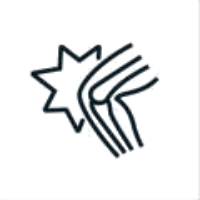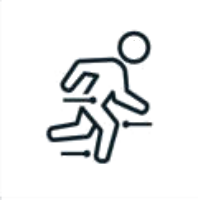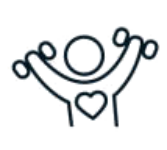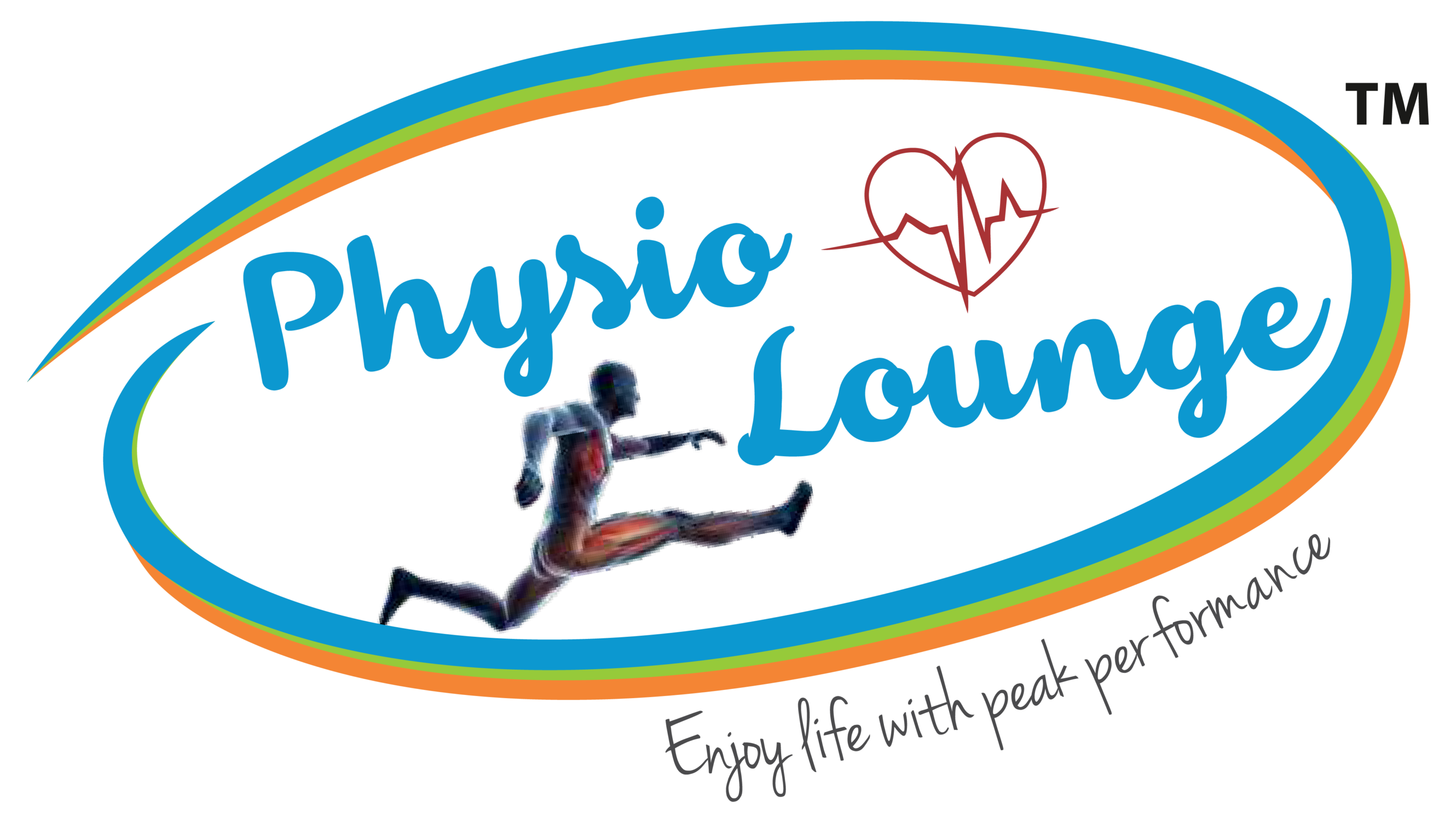Sports Injury Treatments in Goregaon, Mumbai
Overview
Sports injuries are a common occurrence, and can range from minor to severe. Explore Sports injury treatments in Goregaon, At Physio Lounge, we understand the importance of getting the right treatment for a sports injury as soon as possible. Our team of experienced sports physiotherapists will work with you to get you back to your sport as quickly and safely as possible.
Overuse injuries are a problem in many sports with athletes exposed to high training loads, tight competition schedules and insufficient recovery thought to be particularly at risk; especially participating in sports which hAn injury occurs suddenly to previously normal tissue. Acute injuries occur due to sudden trauma to the tissue, with the symptoms of acute injuries presenting themselves almost immediately.
The principle in this instance is that the force exerted at the time of injury on the tissue (i.e. muscle, tendon, ligament, and bone) exceeds the strength of that tissue. Forces commonly involved in acute injury are either direct or indirect. Acute injuries can be classified according to the site of the injury (e.g. bone, cartilage, ligament, muscle, bursa, tendon, joint, nerve or skin) and the type of injury (e.g. fracture, dislocation, sprain or strain).
Benefits of Sports Injury Treatment

Strengthen muscles and joints

Reduce pain and inflammation

Improve range of motion

Get back to your sport faster
Role of Physiotherapists
Sports rehab is the restoration of optimal form(anatomical) and functional(physiology) to get back to the peak performance in sports.It is important to identify rehab as a process target at minimising the loss associated with acute injury or chronic disease and to promote recovery and to maximise functional capacity, fitness and performance
General care to be taken during and after treatment. It can take a few weeks to a few months for a sportsperson to make a full recovery, depending on the nature of the injury.
One shouldn’t hasten the return to their earlier level of activity until fully recovered. However, aiming to gently start moving the injured body part as soon as possible can prove helpful.
The help of a professional, such as a physiotherapist can prove to be effective. A suitable recovery program can be designed and they can advise one about the exercises that should be done.
How Do I Know If I Need Sports Injury Therapy?
Sports injury treatments in Goregaon at Physio Lounge can benefit anyone who has sustained a sports injury, regardless of their age or fitness level. However, it is especially important for athletes who want to return to their sport as quickly and safely as possible.
If you have sustained a sports injury, please contact Physio Lounge today to schedule an appointment. We will work with you to develop a personalized treatment plan that will help you get back to your sport as quickly and safely as possible.
Here are some additional tips for preventing sports injuries:
Muscle strains
Ligament sprains
Tendonitis
Bursitis
Fractures
How to Deal With Sports Injuries?
The impact of an injury can be hard on an athlete, especially when it affects their game. There are both mental and physical aspects at play during the recovery period and can add due to stress and anxiety. The player needs to keep a few things in mind while dealing with the injury.
These few points can prove to be a great coping mechanism for the sportsperson:
Being Aware of Sports Injury
Being aware of the reason, treatment, and prevention of the injury can help lessen the fear or anxiety to a large extent. One must feel free to ask their doctor, trainer, coach, or therapist about what can be done to heal quickly and fully.
Being updated about the diagnosis, the type of injury, treatment options, and their purpose and recovery period can help the patient be abreast with their progress.
Alternative workouts and any warning signs to look out for can also be discussed with the doctor. One must feel free to seek a second opinion if they feel so and especially if surgery is recommended.
Taking Responsibility for Sports Injury
Acceptance and positivity is the key to recovery. The sportsperson instead of focusing on their decreased performance should accept that they have an injury.
This helps one to make a commitment towards their recovery which can result in a positive outcome and instill a sense of confidence in the player.
Commitment to Sports Injury Treatment
A fair amount of motivation and hard work to get back in the game helps one to get back in the game rather than getting discouraged and slacking off on therapy.
The player must be committed to overcoming their injury by showing up for their treatments and listening to the doctor or the trainer.
One must focus on what needs to be done rather than what one is missing out on.
Getting Help for a Sports Injury
The right kind of support can be a big factor in healing and recovery. The sportsmen who tend to isolate themselves from teammates and friends due to injury most of the time end up getting demotivated and their recovery lags. Good advice or encouragement during the rehab process can be a big boon.
Appropriate Goals on Sports Injury
True to the sportsman spirit, a player should turn injury into another training challenge, rather than viewing it as a crisis. The goals must be focused on recovery rather than performance as it will work as a motivation.
Direct/Contact Injury
A direct injury is caused by an external blow or force (extrinsic causes)
- A collision with another person e.g, during a tackle in rugby or football
- Being struck by an object e.g. a basketball or hockey stick
Indirect/Non-Contact Injury
An indirect injury can occur in two ways (intrinsic causes):
- The actual injury can occur some distance from the impact site e.g. falling on an outstretched hand can result in a dislocated shoulder.
- The injury does not result from physical contact with an object or person, but from internal forces built up by the actions of the performer, such as injuries that may be caused by over-stretching, poor technique, fatigue, and lack of fitness. (e.g. muscle strain or ligament sprain).
How to Deal With Sports Injuries?
The impact of an injury can be hard on an athlete, especially when it affects their game. There are both mental and physical aspects at play during the recovery period and can add due to stress and anxiety. The player needs to keep a few things in mind while dealing with the injury.
These few points can prove to be a great coping mechanism for the sportsperson:
Being Aware of Sports Injury
Being aware of the reason, treatment, and prevention of the injury can help lessen the fear or anxiety to a large extent. One must feel free to ask their doctor, trainer, coach, or therapist about what can be done to heal quickly and fully.
Being updated about the diagnosis, the type of injury, treatment options, and their purpose and recovery period can help the patient be abreast with their progress.
Alternative workouts and any warning signs to look out for can also be discussed with the doctor. One must feel free to seek a second opinion if they feel so and especially if surgery is recommended.
Taking Responsibility for Sports Injury
Acceptance and positivity is the key to recovery. The sportsperson instead of focusing on their decreased performance should accept that they have an injury.
This helps one to make a commitment towards their recovery which can result in a positive outcome and instill a sense of confidence in the player.
Commitment to Sports Injury Treatment
A fair amount of motivation and hard work to get back in the game helps one to get back in the game rather than getting discouraged and slacking off on therapy.
The player must be committed to overcoming their injury by showing up for their treatments and listening to the doctor or the trainer.
One must focus on what needs to be done rather than what one is missing out on.
Getting Help for a Sports Injury
The right kind of support can be a big factor in healing and recovery. The sportsmen who tend to isolate themselves from teammates and friends due to injury most of the time end up getting demotivated and their recovery lags. Good advice or encouragement during the rehab process can be a big boon.
Appropriate Goals on Sports Injury
True to the sportsman spirit, a player should turn injury into another training challenge, rather than viewing it as a crisis. The goals must be focused on recovery rather than performance as it will work as a motivation.
Direct/Contact Injury
A direct injury is caused by an external blow or force (extrinsic causes)
- A collision with another person e.g, during a tackle in rugby or football
- Being struck by an object e.g. a basketball or hockey stick
Indirect/Non-Contact Injury
An indirect injury can occur in two ways (intrinsic causes):
- The actual injury can occur some distance from the impact site e.g. falling on an outstretched hand can result in a dislocated shoulder.
- The injury does not result from physical contact with an object or person, but from internal forces built up by the actions of the performer, such as injuries that may be caused by over-stretching, poor technique, fatigue, and lack of fitness. (e.g. muscle strain or ligament sprain).
Treatment Procedures
A number of treatment approaches are used, often incorporating a selection of the following as appropriate:
Manual therapy
Electrotherapy
Massage therapy
Exercise therapy
Taping
The treatments we offer for sports injuries vary depending on the specific injury. If you have sustained a sports injury, it is important to see a physiotherapist as soon as possible. Early intervention can help to reduce pain and inflammation, improve healing time, and prevent further injury.
Our Approach & What to Expect on Your First Visit
Our approach to sports injury therapy is holistic. We understand that sports injuries are not just physical problems, but also emotional and mental challenges. We work with our patients to address all aspects of their injury, from the physical pain to the psychological impact.
On your first visit you must expect the following:
Welcome and Introductions
When you arrive, our friendly staff will welcome you and introduce you to your therapist.
Medical History
You’ll be asked about your medical history, including your neurological condition, any previous treatments, and medications. We’ll discuss your goals for rehabilitation. What do you want to achieve? Whether it’s regaining mobility, reducing pain, or improving function, your goals are our guide.
Assessment
Elevating the injured area can help to reduce swelling. We may recommend propping the injured area up on pillows or a rolled-up towel. Over-the-counter pain relievers, such as ibuprofen or acetaminophen, can help to reduce pain and inflammation. Prescription medications may also be necessary for more severe injuries. Physical therapy can help to improve range of motion, strength, and flexibility. It can also help to prevent future injuries.
Questions and Concerns
Feel free to ask questions or share any concerns you may have. We encourage open communication to make your experience as comfortable as possible. Your therapist will explain the treatment techniques and exercises, ensuring you understand the purpose and how they will benefit you. Also your first session may include hands-on treatment, such as manual therapy or gentle exercises, depending on your condition and needs.
Future Appointments
We’ll schedule future appointments as needed, and your therapist will provide guidance on at-home exercises and self-care. Throughout your journey with us, we’ll offer continuous support, motivation, and guidance to help you achieve your rehabilitation goals.
Frequently Asked Questions
How long does sports injury therapy take?
The length of time that sports injury therapy takes varies depending on the severity of the injury. In general, it takes 4-6 weeks to recover from a mild injury, 6-8 weeks to recover from a moderate injury, and 8-12 weeks to recover from a severe injury.
What can I do to prevent sports injuries?
- Warming up before exercising
- Cooling down after exercising
- Stretching regularly
- Wearing proper footwear
- Using proper technique when exercising Avoiding overtraining
- Listening to your body and taking breaks when you need them
What should I do if I think I have a sports injury?
If you think you have a sports injury, it is important to see a doctor or physical therapist as soon as possible. Early intervention can help to reduce pain and inflammation, improve healing time, and prevent further injury.

